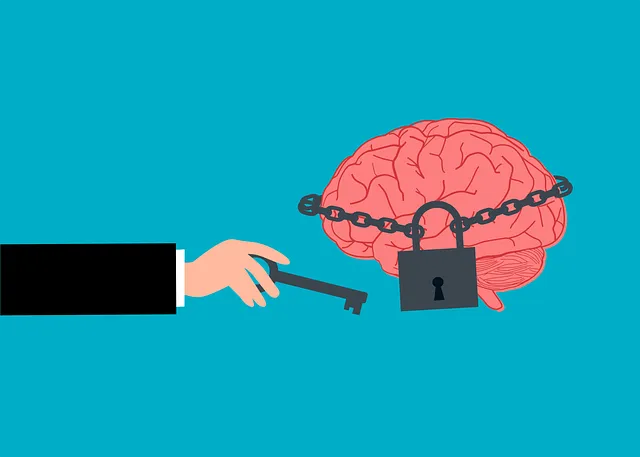Wheat Ridge Kaiser Permanente's behavioral health services offer a comprehensive framework (RFM) for building resilience, focusing on recovery from adverse experiences, cultivating flexibility, and mastering personal challenges. Through self-awareness exercises, mindfulness meditation, and stigma reduction, individuals gain emotional understanding, effective stress adaptation, and empowerment. Structured workshops led by trained facilitators create a safe space for learning lifelong skills that support mental health and well-being, while measuring success through pre/post assessments and participant feedback ensures tailored, effective programs aligned with community needs.
Resilience is a crucial asset in navigating life’s challenges. This article explores the RFM (Recovery, Flexibility, and Mastery) framework as a comprehensive tool for building resilience. We delve into how organizations like Wheat Ridge Kaiser Permanente Behavioral Health Services play a pivotal role in promoting resilience through specialized programs. Discover various resilience-building exercises, their advantages, and best practices for implementation. Additionally, learn effective strategies for measuring the success of resilience training initiatives, highlighting their impact on individuals’ well-being.
- Understanding RFM: A Framework for Resilience Building
- The Role of Wheat Ridge Kaiser Permanente Behavioral Health Services in Promoting Resilience
- Types of Resilience-Building Exercises and Their Benefits
- Implementing RFM Exercises: Strategies and Best Practices
- Measuring Success: Evaluating the Impact of Resilience Training Programs
Understanding RFM: A Framework for Resilience Building

Resilience is a crucial aspect of emotional well-being, enabling individuals to navigate life’s challenges and adapt to change. The RFM (Recovery, Flexibility, and Mastery) framework offers a structured approach to building this vital skill. Developed by professionals at Wheat Ridge Kaiser Permanente behavioral health services, RFM focuses on three key components: recovery from adverse experiences, cultivating flexibility in thought and action, and mastering personal challenges.
This holistic method encourages self-awareness exercises, mindfulness meditation, and mental illness stigma reduction efforts to enhance each pillar. By integrating these practices, individuals can develop a deeper understanding of their emotions, adapt more effectively to stressful situations, and ultimately foster a sense of control and empowerment in their lives.
The Role of Wheat Ridge Kaiser Permanente Behavioral Health Services in Promoting Resilience

Wheat Ridge Kaiser Permanente Behavioral Health Services plays a pivotal role in fostering resilience among individuals seeking support for their mental well-being. This healthcare organization offers specialized programs designed to empower people with effective coping skills and stress management techniques. Through a range of services, they guide patients on a journey of self-discovery and emotional strength.
The Wheat Ridge Kaiser Permanente behavioral health team conducts comprehensive assessments to tailor interventions, including group therapy sessions and interactive workshops. These initiatives focus on various aspects of resilience building, such as enhancing self-awareness exercises, promoting healthy coping mechanisms, and teaching practical strategies for managing stress. By engaging in these activities, individuals can develop a deeper understanding of their emotions and gain valuable tools to navigate life’s challenges more effectively.
Types of Resilience-Building Exercises and Their Benefits

Resilience-building exercises are a powerful tool to enhance mental health and overall well-being, offered by Wheat Ridge Kaiser Permanente behavioral health services. These activities are designed to equip individuals with coping mechanisms and a sense of empowerment, fostering an ability to navigate life’s challenges. One such exercise is mindfulness meditation, which encourages individuals to focus on the present moment, reducing stress and anxiety. Regular practice has been linked to improved emotional regulation and enhanced overall mental clarity.
Another effective method is cognitive reframing, where individuals are taught to challenge negative thought patterns and replace them with more positive and realistic perspectives. This technique, a part of Self-Care Routine Development for Better Mental Health, promotes a sense of optimism and resilience. Cultural sensitivity in mental healthcare practice also plays a vital role, ensuring that exercises are adaptable and inclusive, catering to diverse backgrounds and beliefs. By incorporating such approaches, Wheat Ridge Kaiser Permanente behavioral health services aim to empower individuals to build resilience and cultivate Positive Thinking, ultimately improving their quality of life.
Implementing RFM Exercises: Strategies and Best Practices

Implementing RFM (Resilience, Flexibility, and Mindfulness) exercises through Wheat Ridge Kaiser Permanente behavioral health services offers a transformative approach to stress management and inner strength development. These exercises are designed to help individuals cultivate resilience in the face of challenges, fostering adaptability and emotional balance. By incorporating practices such as mindfulness meditation, breathing techniques, and cognitive reframing into their programs, the organization enhances participants’ ability to navigate life’s uncertainties with grace.
The best practices for effective RFM exercise implementation include integrating these activities into structured workshops or classes led by trained facilitators. Mental health education programs can benefit from incorporating regular sessions that teach practical tools for managing stress and cultivating mindfulness. Additionally, promoting a safe and non-judgmental environment encourages participants to embrace vulnerability, which is essential for building inner strength. Through tailored exercises, the Stress Management Workshops Organization at Wheat Ridge Kaiser Permanente empowers individuals to develop lifelong skills that support their overall mental health and well-being.
Measuring Success: Evaluating the Impact of Resilience Training Programs

Measuring success is a critical component of any resilience-building initiative, especially when evaluating the impact of programs like those offered by Wheat Ridge Kaiser Permanente’s behavioral health services. The effectiveness of resilience training can be assessed through various methods tailored to the specific goals and outcomes desired. One approach involves pre- and post-program assessments, where participants’ mental health status, stress levels, and coping mechanisms are evaluated before and after the training. This comparative analysis helps gauge improvements in areas such as anxiety relief, which is often a primary target of these programs.
Additionally, qualitative feedback from participants through surveys or focus groups can provide valuable insights into their experiences and perceived benefits. These methods allow individuals to share personal stories of how mindfulness meditation practices and community outreach program implementations have positively impacted their lives. By combining quantitative data with qualitative feedback, Wheat Ridge Kaiser Permanente behavioral health services can ensure that their programs are not only effective but also aligned with the needs and experiences of the communities they serve.
Resilience is a powerful tool for navigating life’s challenges, and the RFM framework offers a structured approach to building this essential skill. As demonstrated by the innovative programs at Wheat Ridge Kaiser Permanente Behavioral Health Services, integrating resilience-building exercises into healthcare can significantly improve patients’ well-being. These exercises not only empower individuals to cope with stress and adversity but also have long-lasting positive effects on mental health. By adopting best practices outlined in this article, healthcare professionals can effectively incorporate RFM into their practices, ultimately fostering resilience among their patients and communities.






